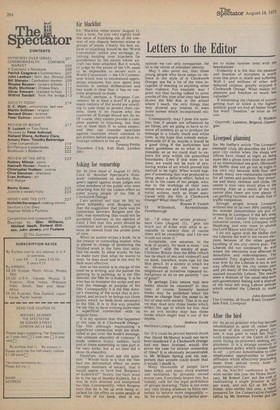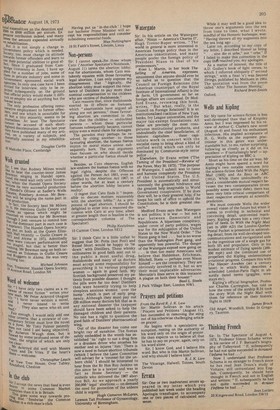After the bird
Sir: As an ex-prisoner who has becorne rehabilitated in spite of, rather than because of this country's penal sYs," tern, it was good to read Jim Daly s lucid exposition of the Catch 22 it ation facing ex-prisoners seeking env, ployment. It is a strange anomaly 0' government policy which causes theni to ex' -i private industrialists to offer employment opportunities to former offenders whilst effectively precluding, them from almost every form °' government service. At the NACRO conference in NW" wich earlier this year the Home Secret; tar', Mr Robert Carr, put the cost o! maintaining a single prisoner at e3 per week, and not £23 as Mr Po)Y states. Also earlier this year, a report, prepared for the Conservative Centre Office by Mr Norman Fowler put the t°(al expenditure on the detection and toot) to £600 million per annum. Ex Pensive retribution indeed, and many Sines the amount expended annually on rehabilitation.. But it is not simply a change in Government policy which is needed. Society, too, must change its attitude towards former offenders and learn to use their potential abilities to good effect. Since I graduated from Cambridge University in June, I have appliedfor a number of jobs, some of them in private industry and some in Government sponsored. social work gencies. In only one case have I been Invited for interview, only to be rejected subsequently on the ground that official policy would make it difficult to employ me at anything but the loWest level. The only profession offering remunerative employment to former offenders, and one which is unsuitable for all but a tiny minority, seems to be Journalism. At least The Spectator cannot be accused of such short Sighted discrimination. In the last year they have
published many of my arti
cles' on a variety of subjects, and
Materially assisted in my rehabilitation.
Douglas Curtis 43 Malcolm Place, Cambridge

































 Previous page
Previous page